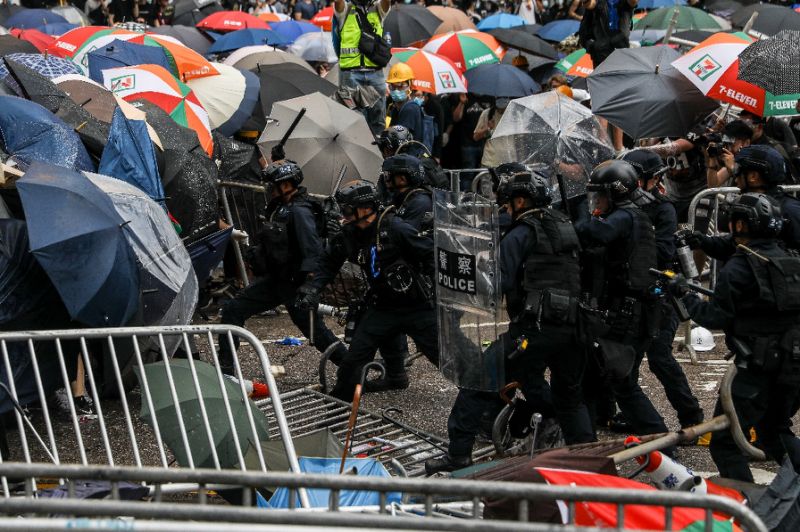Millions of voters in Hong Kong will be heading to the polls on Sunday as the city holds its district council election. It will be the first governmental polls since the city’s social unrest began in June.
Ahead of the election, the city’s officials warned the vote could be postponed after some candidates came under attack and the city was paralyzed as protesters blocked roads and riot cops laid siege to a university.
Police are dispatching at least two officers clad in riot gear to each polling booth, all of which are set to close at 10:30 pm. Results are expected in the early morning hours on Monday.
Advertisement
Bruce Lui, Senior Lecturer at the Department of Journalism, Hong Kong Baptist University said, “The election will be the barometer to reflect the social sentiment and also whether people support the government or the protesters, or they are tired of the violence,”
Under the current electoral system, only 94% of the district council seats and half of the seats at the legislative council — the city’s parliament that’s commonly referred to as the Legco — are elected by general public voters.
Hong Kong’s chief executive, the city’s top leader, can only be nominated and elected by a committee that consists of 1,200 members, mostly pro-Beijing elites.
On Friday, the city’s police asked the demonstrators to leave the city’s Polytechnic University (PolyU) campus as soon as possible, citing bad and dangerous conditions inside.
On Tuesday, United States Senate unanimously passed a bill that would require an annual review of the special treatment Hong Kong receives under US law after almost six months of protests in the Asian financial club.
Earlier this week, around 800 students have been reported to be trapped in the Polytechnic University in the city, where the police were firing tear gas at any protesters trying to escape the campus.
The protests, which have been drawing massive crowds since June following a contentious proposed extradition law that has been pulled by the government, have mutated into a movement that seeks to improve the democratic mechanisms that govern Hong Kong and safeguard – or expand – the region’s partial autonomy from Beijing.
The controversial China extradition bill was withdrawn in early September but the movement has morphed into a wider campaign for greater democracy and against alleged police brutality.











